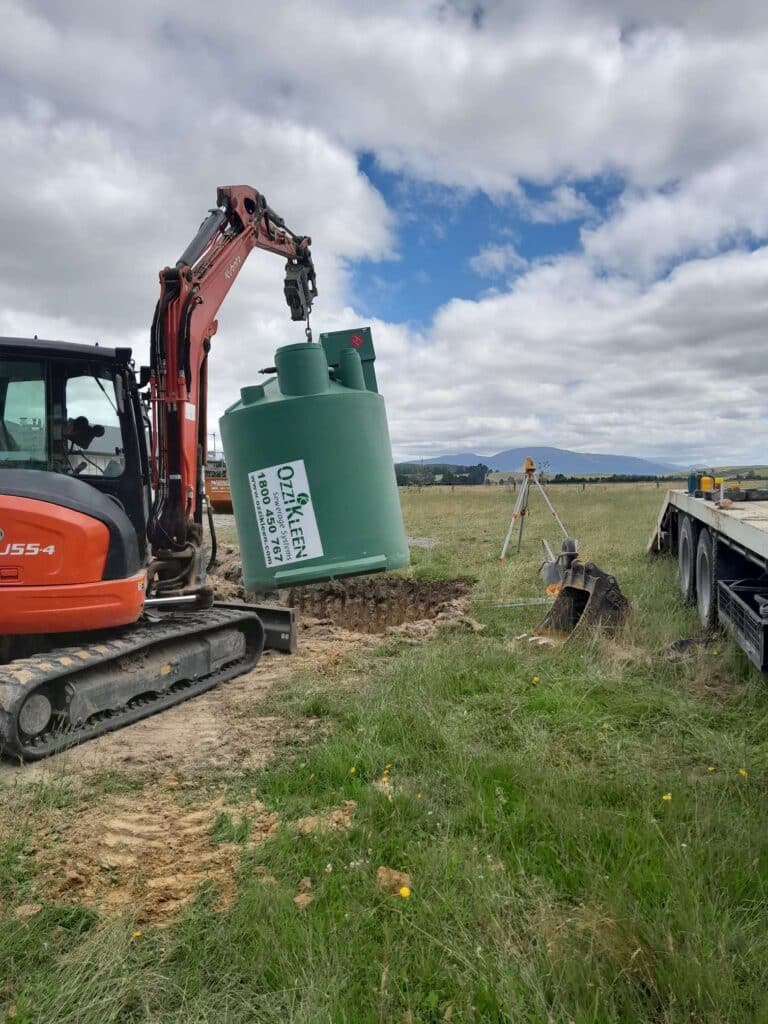Septic tank replacement in Auckland is vital for maintaining high health and environmental standards. Without timely replacement, a faulty septic tank can cause significant problems, including environmental contamination and costly property damage. This article explores the importance of septic tank replacement, signs that indicate replacement is needed, and the benefits of upgrading an ageing or failing system.
Septic systems play a crucial role in Auckland’s homes and properties, particularly in rural and semi-rural areas where city sewage connections are unavailable. Proper waste management is essential to ensure environmental safety and the health of residents, and a well-maintained septic system is key to achieving this. Over time, however, septic tanks can deteriorate or fail, necessitating replacement to avoid harmful consequences.
Overview of Septic Tanks in Auckland
What is a Septic Tank?
A septic tank is an underground wastewater treatment structure typically used in areas not served by city sewage systems. It functions by separating solids from liquids in wastewater. The solid waste settles at the bottom, forming sludge, while oils and grease float to the top, forming scum. The liquid in the middle is then discharged into a drainage field, where further natural filtration occurs. Septic tanks require regular maintenance to prevent blockages and overflows.
In Auckland, many properties, particularly in rural and semi-rural areas, rely on septic systems. This makes septic tank replacement in Auckland a key aspect of waste management, as these systems ensure proper wastewater treatment for homes and businesses not connected to municipal sewage systems.
Common Types of Septic Tanks in Auckland
Several types of septic tanks are commonly used in Auckland, each with its own benefits and drawbacks. The most common materials are concrete, plastic, and fibreglass:
- Concrete Septic Tanks: These are durable and long-lasting, with a lifespan of around 30-40 years. However, they can crack over time, leading to the need for replacement. Concrete tanks are also quite heavy, making installation more challenging.
- Plastic Septic Tanks: These are lightweight, easier to install, and resistant to rust. However, they can be prone to damage if not installed correctly or if subjected to heavy pressure from above.
- Fibreglass Septic Tanks: These tanks are lightweight, durable, and resistant to corrosion and cracking. They can be a great long-term option for septic tank replacement in Auckland but tend to be more expensive than plastic tanks.
Choosing the right tank is critical for ensuring long-term functionality and efficiency in Auckland’s diverse climates and soil conditions.
Why Septic Tank Replacement is Necessary
Signs of a Failing Septic Tank
Septic tanks, like any other system, can wear out over time. Knowing when to replace your septic tank is crucial to avoid environmental and health hazards. Here are some common signs that indicate it may be time for septic tank replacement in Auckland:
- Frequent backups and slow drains: If your drains are constantly slow, or your toilets back up frequently, it could indicate that your septic tank is full or failing.
- Pooling water: Water pooling around your septic tank or drain field, particularly in dry weather, is a sign that the system is not functioning properly and may require replacement.
- Unpleasant odours: Strong, foul odours near your septic tank or drain field can indicate a leak or overflow, signalling the need for a replacement.
Some issues can be repaired, but recurring problems often point to the need for a full replacement.
Impact of a Malfunctioning Septic System
The consequences of a malfunctioning septic system can be severe, both environmentally and financially. A failing system can cause:
- Water contamination: When a septic tank fails, untreated wastewater can seep into the groundwater, contaminating drinking water sources and local ecosystems. This can lead to serious health risks for both people and animals.
- Soil degradation: Septic system leaks can erode and damage soil, reducing the fertility and usability of the land surrounding the system.
- Health risks for the community: Leaking or overflowing septic tanks can expose residents to harmful pathogens, leading to diseases and other health problems.
In Auckland, the Auckland Council regulates septic tank systems and enforces specific standards for their operation and replacement. Homeowners must comply with these regulations to avoid penalties and potential hazards. Ignoring the need for septic tank replacement can result in high costs due to environmental damage and possible legal actions.

Benefits of Septic Tank Replacement in Auckland
Improved System Efficiency and Capacity
Newer septic tanks are designed to be more efficient, handling larger volumes of waste and reducing the risk of blockages and system failures. Upgrading to a more modern system ensures that your home or business is equipped to handle increased waste output, especially as Auckland continues to grow and expand.
By replacing outdated systems, property owners can also ensure compliance with Auckland’s latest regulations and standards, avoiding potential legal issues and fines.
Environmental Protection
One of the biggest benefits of septic tank replacement in Auckland is its positive impact on the environment. An old or damaged tank can leak harmful waste into the surrounding soil and water, contaminating local ecosystems. Replacing these tanks ensures that wastewater is treated properly, preventing groundwater contamination and protecting Auckland’s environment.
In rapidly expanding suburban areas, maintaining clean and sustainable waste systems is essential for future growth. Septic tank replacement is a proactive step towards sustainable waste management and environmental protection in Auckland.
Enhanced Property Value
Replacing an old septic tank can also increase the value of your property. A well-maintained, up-to-date septic system is a significant selling point for potential buyers, as it ensures that the waste system is in good working order.
For property owners looking to sell, investing in septic tank replacement in Auckland can lead to a higher selling price and attract more buyers, as they won’t have to worry about costly repairs or replacements in the future.
The Septic Tank Replacement Process in Auckland
Assessing the Need for Replacement
Before beginning the septic tank replacement process, it’s important to have a professional assess the current system. This typically involves a thorough inspection of the tank, drain field, and surrounding soil. In Auckland, professionals follow specific guidelines and regulations to determine whether replacement is necessary.
Septic tanks usually last for decades, but factors such as soil conditions, maintenance habits, and usage levels can affect their lifespan. A professional inspection will identify any major issues that may warrant replacement.
Choosing the Right Septic Tank for Replacement
When it comes to choosing the right septic tank for replacement, there are several key factors to consider:
- Size: The size of the tank should be based on the household’s or business’s water usage and the size of the property. Larger families or businesses may need a bigger tank to accommodate increased wastewater.
- Material: Concrete, plastic, and fibreglass are all viable options, each with different advantages based on the property’s location and needs.
Auckland’s market offers a range of septic tanks to suit different soil types and property sizes, so it’s important to consult with professionals who can guide you in making the best choice.
Installation Process
The process of septic tank replacement in Auckland typically begins with excavation to remove the old tank. Once the old system is removed, the new tank is installed, and the system is tested to ensure everything is functioning properly.
During this time, homeowners may experience some temporary disruptions to their property, but professionals can help minimise these. In Auckland, it’s also important to adhere to council regulations to ensure the installation is compliant with local laws.
Long-Term Maintenance of a New Septic Tank
Post-Replacement Care
After replacing a septic tank, regular maintenance is key to ensuring it continues to function efficiently. This includes scheduling regular inspections and pumping out the tank as needed to prevent build-up and blockages.
Staying on top of maintenance helps avoid future costly replacements and ensures your system is compliant with Auckland regulations.
Avoiding Common Issues
To keep your new septic system functioning properly, it’s important to avoid flushing non-degradable materials down the drains. Items like wipes, feminine hygiene products, and oils can clog the system and cause serious damage. Being mindful of water usage and what goes into the system will help prevent issues.
Conclusion
Septic tank replacement in Auckland plays an essential role in ensuring that waste is managed safely and efficiently, protecting both the environment and public health. By staying proactive and replacing faulty or outdated systems, Auckland property owners can avoid costly repairs, improve their property’s value, and contribute to a cleaner, more sustainable future.
If you’re a homeowner or business owner in Auckland, it’s important to recognise the signs of a failing septic system and act before it becomes a major issue. Septic tank replacement is not only a necessary investment for your property but also for the well-being of the community and the environment.
Get your business noticed by creating an online directory listing. Listings are FREE and you can create as many as you need.
- Get found by locals



